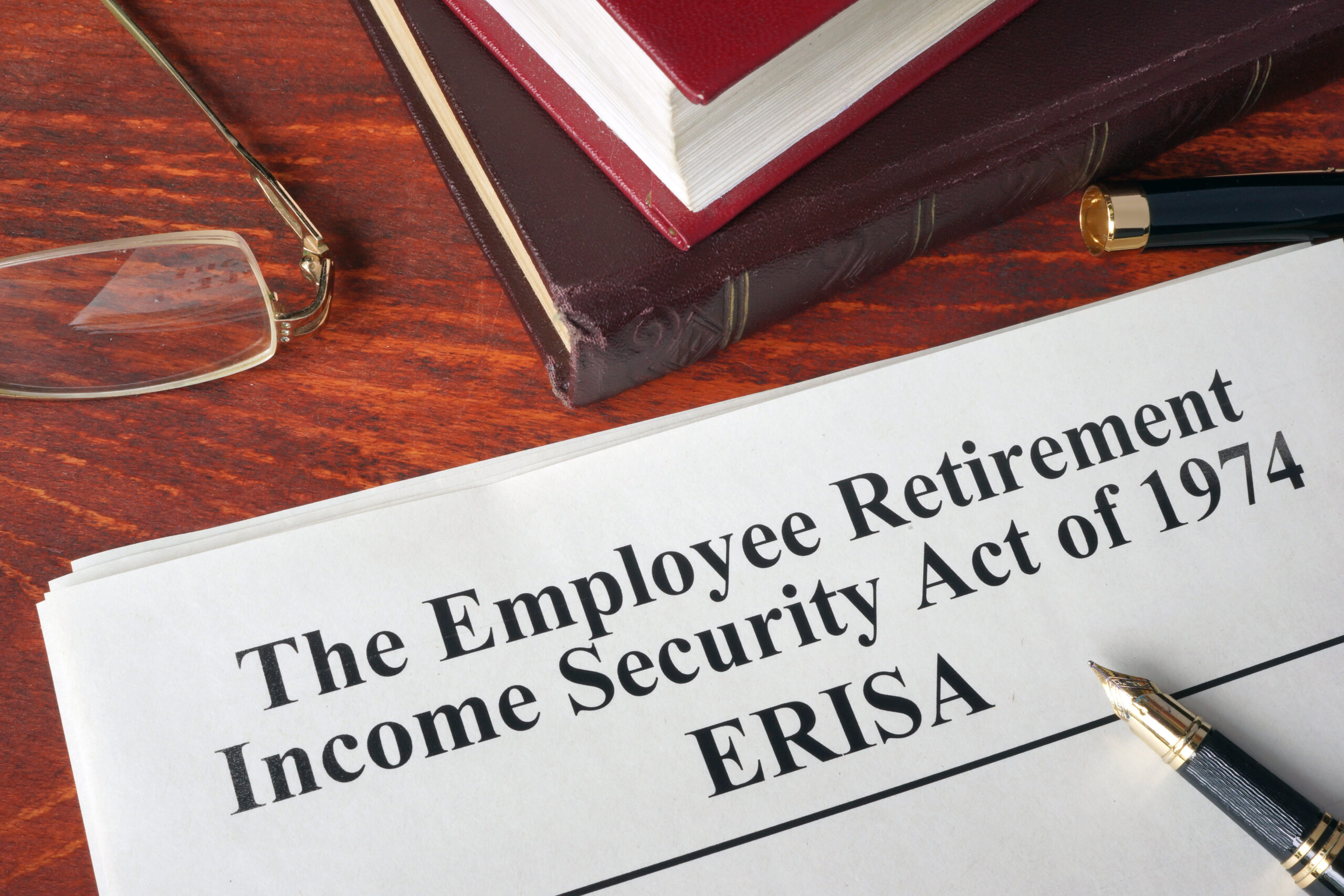
The Employee Retirement Income Security Act (ERISA) was enacted in 1974 as a law that offers guidance and a standard to all health and retirement plans in private industries. ERISA law was designed to offer protection to employees who worked for private businesses across America.
ERISA establishes minimum standards for participation, benefit accrual, vesting, fiduciary responsibilities, and control of assets. The law provides fiduciary responsibilities to individuals in control and those who manage assets. ERISA gives contestants the right to prosecute for fiduciary duty and benefits breaches. Upon termination of a benefit plan, certain benefits are paid to participants through a federally chartered corporation called PBGC.
Since its enactment, various organizations in America have been sued under the ERISA law for alleged breaches of fiduciary duties. This article will discuss some of the famous ERISA law cases.
The most prominent and settled ERISA cases include:
• Allegretti et al. v. Walgreen Co.
• Sandoval, et al. v. Exela Enterprise Solutions, Inc.
• Rollins et al. v. Dignity Health
• Ruane, Cunniff & Goldfarb, Inc.
• Cruz et al. v. Raytheon Co.
• Smith et al. v. OSF Healthcare System
• Moitoso, et al. v. FMR LLC
• Cunningham, et al. v. WAWA, INC.
The most famous and recent ERISA cases include companies such as:
• Walgreens
• Wells Fargo
• Home Depot
• Actress Hillary Swank
• Liberty Mutual
• ADP
1. Michael W. Allegretti et al. v. Walgreen Co. et al.
This certified class of 401(k) plan participants sought approval of their $13.75 million deal to settle individual claims against Walgreens. In the lawsuit, Walgreens cost its workers $300 million by investing their retirement savings in a mutual fund that earned meager returns. According to the plaintiffs, the Northern Trust funds performed worse than 70% to 90% of similar arrangements. Further, they claimed that since its launch in 2010, the Northern Star has consistently failed to meet its benchmark indexes.
This lawsuit, filed under the violation of ERISA, targeted the retirement plan committee of the 401(k) plan, the company's board of directors, and the trustees of the retirement plan trust. According to the plan’s record keepers, the class members were approximately 195,000. They settled after extensive discovery, mediation, and several months of negotiations.
The settlement provided fair and reasonable compensation while averting the risks associated with continued litigation. According to experts, damages were calculated and added up to $34 million.
2. Pizarro v. The Home Depot
The ERISA case between Pizarro and The Home Depot takes interesting twists and turns as the plaintiffs seek the fourth re-assignment. On March 4, the $140 million class action was assigned to Judge Grimberg after Judge William Ray II recused himself because he was in the process of inheriting the Home Depot stock.
The plaintiff alleges that the fiduciaries of The Home Depot Future Builder 401(k) Plan paid unreasonable high fees and retained underperforming investment funds in violation of ERISA law. According to the plaintiff’s calculations, the average Home Depot plan participant earned $100,000 less than other participants in similar-sized plans. This disparity translates to 18 years of additional work for every participant.
Participants claimed that excessive advisory fees paid by the Home Depot suppressed their retirement earnings further. Financial Engines charged excessively high fees compared to other investment managers. The company charged not only a flat fee but also a fee that would rise with the increasing investment of every participant.
This class action covers more than 300,000 employees who have been participants in the plan since 2012. The current case is between Pizarro and his argument on the fiduciary's breach of ERISA law since Financial Engines was dropped in litigation.
3. Becker et al. v. Wells Fargo & Co. et al.
The class-action lawsuit on behalf of Yvonne Becker, a participant, asserts that executives at Wells Fargo, named as fiduciaries of the retirement plan, selected and retained 17 proprietary funds of the bank. Most of these funds performed poorly, gauging from the benchmark picked by the bank. The lawsuit claims that the bank mismanaged a $40 billion 401(k) plan, violating ERISA.
In the original complaint, Becker indicated that Galliard Capital Management Inc., funneled $5 billion of the $40 billion plan to affiliated funds, a move that cost the investors hundreds of millions of dollars.
In an out-of-court settlement, Wells Fargo & Co. agreed to pay $32.5 million in payment of the ERISA lawsuit. The settlement required approval of the court, but the motion filed on April 1 indicated that the defendants were not opposed to it. The parties reached an agreement to avoid the lengthy, complex, and costly proceedings.
4. Hilary Swank and SAG-AFTRA
Hilary Swank sued SAG-AFTRA under ERISA with allegations that its ovarian cyst and endometriosis policies are sexist, discriminatory, and antiquated. As an actress, Swank is a member of the SAG-AFTRA union, which represents thousands of people in the entertainment industry. In the original complaint, Swank indicated that she had lifelong endometriosis, which contributed to various health challenges and deteriorated her quality of life. SAG-AFTRA denied her medical coverage for an ovarian cyst procedure when she sought treatment.
In the complaint, SAG had classified her procedure as a form of fertility control, a procedure not covered by the system since it is considered cosmetic. While airing her case, she indicated that the suit would benefit many individuals denied healthcare because their insurance providers could not approve different procedures.
Hilary Swank entered into a written agreement settlement with the board of trustees of SAG-AFTRA Health Plan. The agreement was to resolve her lawsuit by asking the trustees through the federal judge to cover her treatment expenses in full.
Recovering Lost Revenue
For a dedicated ERISA law partner, reach out to the team at Auraven. Auraven offers untapped solutions to help hospitals regain much-needed revenue, and we do it while ensuring every bit of information remains safe and secure. By using the federal ERISA appeal, it will ensure maximum benefit reimbursement or recovery for denied benefit claims.
Call Auraven today at 833.927.7325










